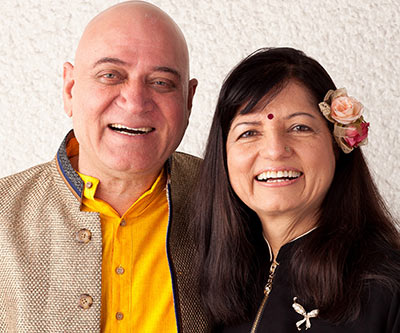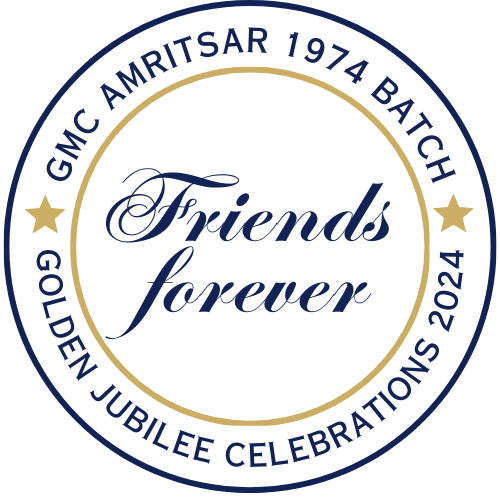Born in a small village Mohrewala near Ferozepur , I was the youngest of eight children. Hailing from a farming background, my parents never attended school. Being simple village folk, they were engrossed in the daily grind of farm life. None of my siblings were interested in studying, however I was the odd one. It was my mother’s dream that I should become a doctor, as one had to travel almost 15 miles to seek any kind of medical help. She hoped I would study medicine and return to the village to help the people.
In pursuance of her wish, I went to a boarding school and worked hard to get my medical degree. After graduation, I went to Mumbai to study medicine. Completely lured by the glitz and glitterati of the city, I began conjuring up images of becoming rich and famous. I tried everything in my capacity to reach for the skies, but soon realized it was not that simple. My quest did not succeed and I slumped into depression.
Life was tough and it was not easy to make money without any business experience. I was stressed and miserable. At that time, my mother visited Mumbai and was shocked to see my state. She said, “Madan, what is wrong? You don’t look happy and you don’t laugh and smile like you did in the village.” She was right. Somewhere in the midst of upward scramble, I had actually lost my laughter. The transition from an innocent village boy to a city doctor had seriously altered my persona. I knew I was in trouble. Having realized the enormity of the situation, I embarked on a new search – and this time it was not money. It was to find my laughter – the key to happiness and joy.
Not content with being a practicing physician in a suburb in Mumbai, I launched a health magazine ‘My Doctor’ to spread more awareness about good health among people. It was in March 1995, while writing an article ‘Laughter – The Best Medicine’ for my journal, I stumbled upon a rich repertoire of scientific work done on laughter as a therapy. On exploring further, I was amazed at the volume of documented studies that described at great length the many proven benefits of laughter on the human mind and body.
I also read about the scientific studies done by Dr. Lee Berk of Loma Linda University in California, which showed that mirthful laughter reduces stress levels and has a positive effect on the immune system.
It was March 13th, 1995 – I got up at 4am and was pacing up and down in my living room when a sudden idea flashed through my mind: If laughter is so good, why not set up a Laughter Club. I was ecstatic and could hardly wait to implement the concept. Within three hours, I hurried to the public park where I used to go for a morning walk every day. I tried to convince regular walkers about the importance of laughter and to start a Laughter Club.
The expressions were predictable. They were aghast and actually thought I was crazy. They laughed at the idea and scoffed at the whole concept. But, I was unshakeable and did not give up. I managed to motivate four out of 400 people and thus was born the first Laughter Club with just five people.
We met for half an hour every morning to laugh together much to the amusement of befuddled onlookers. In the beginning, the session began by someone telling a joke or narrating a humorous anecdote. Soon people started enjoying the whole exercise and reported feeling much better after a laughter session of 20-30 minutes.
Bearing the initial ridicule and criticism, I firmly continued to explain the health benefits of laughter. Gradually, people became a little more receptive and showed a keen interest. The attendance started growing, and there were nearly 55 people by the end of the week. For ten days the routine continued with much vigor, after which we hit a snag. The stock of good jokes and stories ran out, and negative, hurtful and naughty jokes started to emerge. Reacting to the offensive jokes, two participants complained that it would be better to close the club than to continue with such jokes.
Determined to keep the Laughter Club alive, I asked the club members to give me just a day to resolve the crisis. That night, I was looking for some way to laugh without jokes. Luckily, I laid my hands on a book called ‘Emotions and Health’, from Prevention Health Care Series (USA). While reading a chapter on humor and laughter, I was surprised to learn that the body cannot differentiate between real and fake laughter. It clearly revealed that if one cannot laugh, one should pretend to laugh. I also learnt that not only laughter, but a bodily expression of any motion, generates a similar emotion in the mind. This was the breakthrough I was looking for and I thought why not use laughter as an exercise?
The next morning, I explained this to the group and asked them to try and act out laughter with me for one minute. Though skeptical, they agreed…The results were amazing. For some, acted out laughter quickly turned into real laughter — this was contagious and very soon others followed. The group was laughing like never before and the hearty laughter that followed persisted for almost ten minutes.
Finally, there was laughter, real laughter – with no jokes!
As the concept evolved, I found many similarities between laughter and pranayama in yoga. Both were based on the principle of optimal breathing – fundamental to good health. Together with my wife, Madhuri, we incorporated the elements from this ancient form of yogic breathing with laughter and the result was Laughter Yoga or Hasya Yoga ( as known in Sanskrit) – a complete workout for health and wellness.
To be continued ;…..




